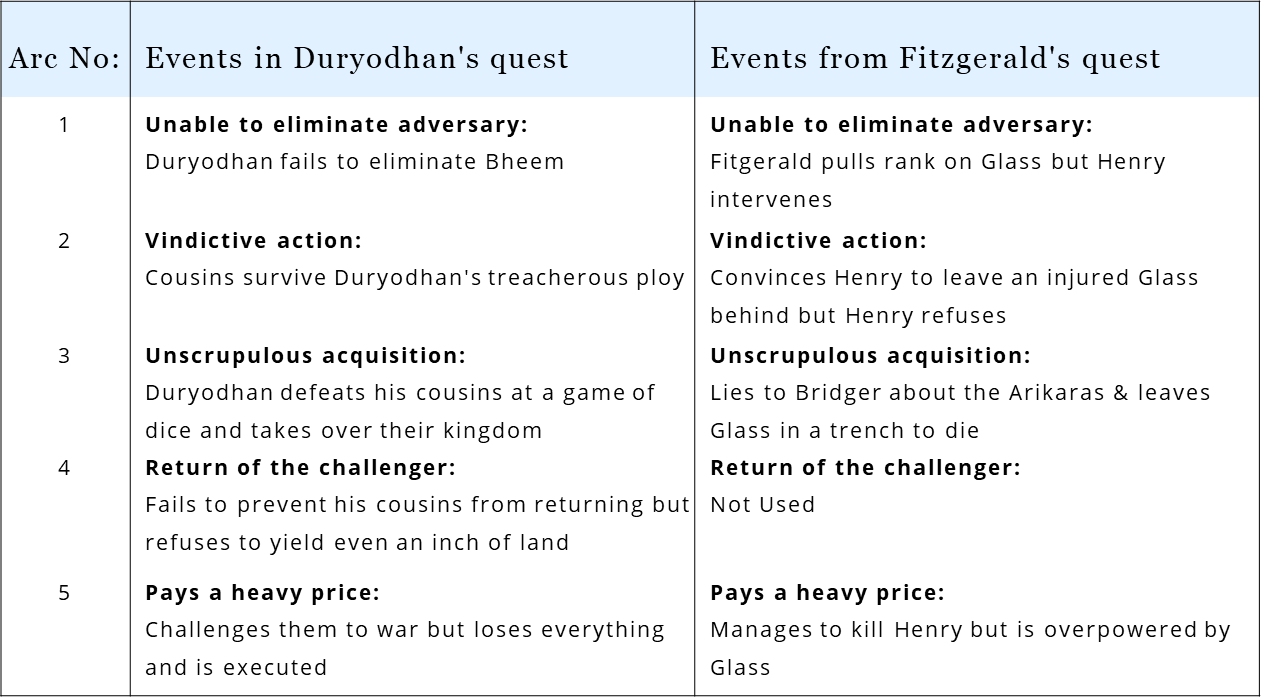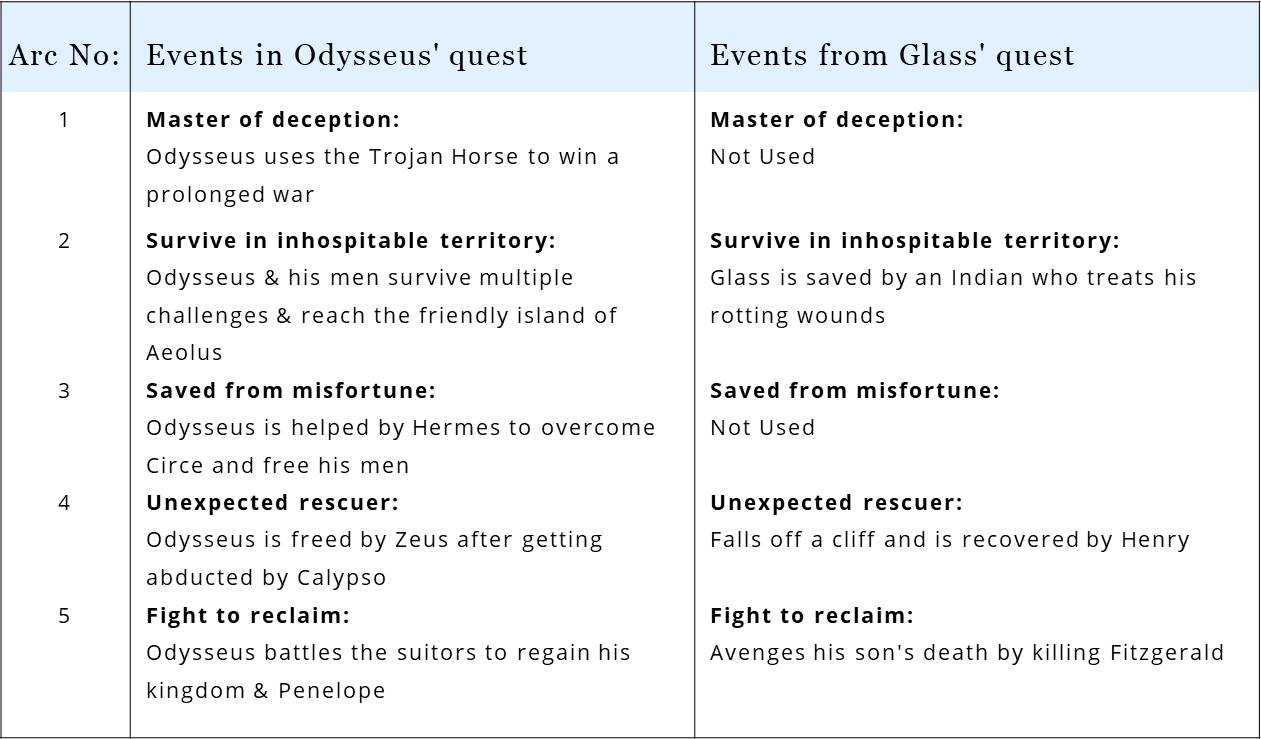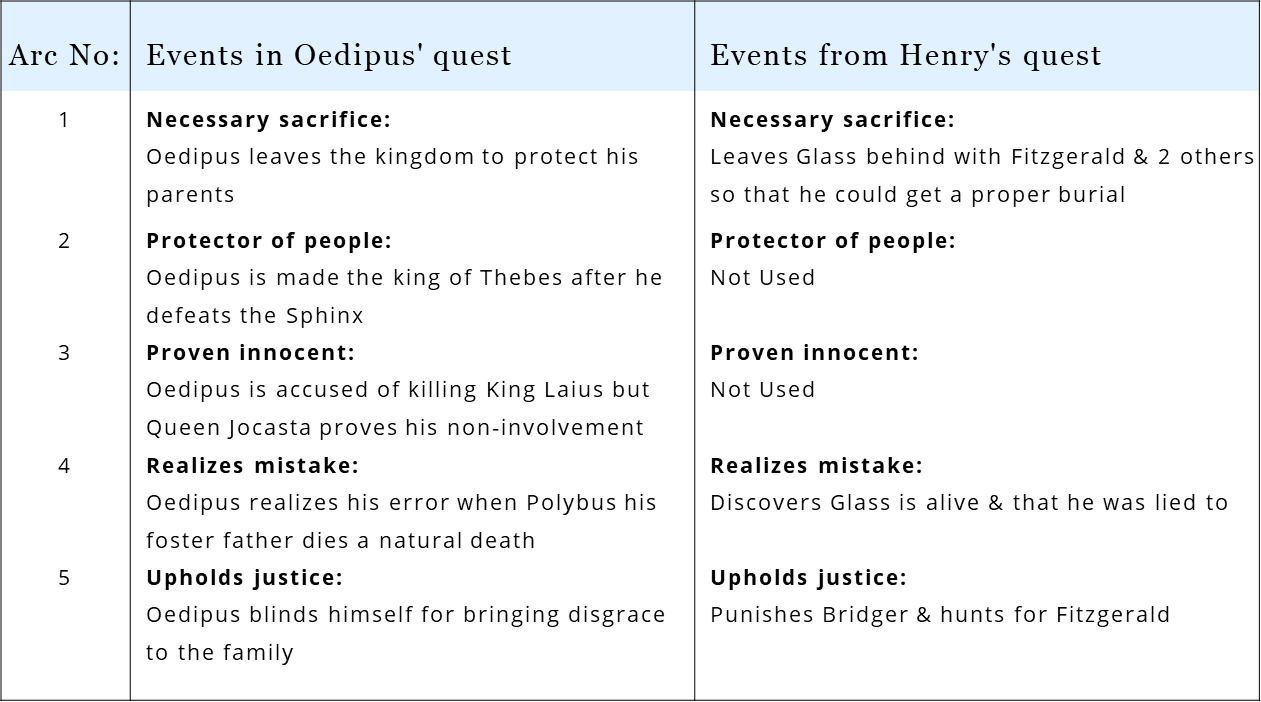The script potential score of The Revenant is 0.23 (predicted revenue 178-198MM; actual 184MM)

- The script of The Revenant will appeal to 6.56 – 7.29% of the population
- 89% events in The Revenant are borrowed from 3 mythological tales
The script of The Revenant will appeal to 6.56 – 7.29% of the population
Any story is the quest to fulfil a human desire. We have identified universal quests for every human desire. These universal quests reveal the invisible plot structure of stories. An analysis of Blockbuster, Hit & Flop plots led to the discovery of Mythosis Code. The Code reveals the story principles shared by all Blockbusters. We use the Code to estimate and unlock a story’s Blockbuster potential.
- All Blockbusters have at least 3 universal quests. The Revenant has 3 universal quests of Family, Vengeance & Tranquillity.
- In Blockbusters, each universal quest is mirrored by ONLY ONE character. Henry mirrors the universal quest of Family. Fitzgerald mirrors the quest of Vengeance. Glass mirrors the quest of Tranquillity.
- Every Blockbuster character borrows at least 35% of the universal quest. Henry’s character borrows 13% of the universal quest of Family. Fitzgerald’s character borrows 27% of the quest of Vengeance. Glass borrows 27% of the quest of Tranquillity.
- Blockbusters interweave different quests to create a tight plot structure. Interweaving occurs when events of 2 quests occur simultaneously in the story. Blockbusters have a quest interweaving threshold of 0.5. The Revenant’s has a perfect quest interweaving score of 1. An example of interweaving Fitzgerald’s & Henry’s quests:

- Blockbusters have a script score of at least 0.64 whereas The Revenant’s script score is 0.23. Based on the script score we estimate that the movie will appeal to 6.56 – 7.29% of the population.
The plot structure of The Revenant perfectly interweaves 3 universal quests which are mirrored by uniquely by one character. However, all 3 characters don’t have sufficient depth since they borrow inadequately from their respective quests.
89% events in The Revenant are borrowed from 3 mythological tales
At Mythosis, we have identified 32 mythological tales. Each mythological tale uniquely represents a human quest to fulfil a desire. These tales are the super set of thousands of tales across cultures.
We have codified the events of each mythological tale. Every tale has 5 major arcs. Each arc has a sequence of events. These events culminate into a major event. Here is the mapping of each character’s quest to the major events in their respective mythological tale.
Quest 1: Fitzgerald mirrors 27% of Duryodhan’s quest for Vengeance (below threshold of 35%)
Fitzgerald’s desire for Vengeance stems from the need to confront offenders. The tale of Duryodhan from Hindu mythology is the universal quest for Vengeance.

Quest 2: Glass mirrors 27% of Odysseus’ quest for Tranquillity (below threshold of 35%)

Quest 3: Henry mirrors 13% of Oedipus’ quest for Family (below threshold of 35%)
Henry’s desire for Family stems from the need to nurture & protect. The tale of Oedipus from Greek mythology is the universal quest for Family.

- Tags: 2015, 20th Century Fox, Alejandro G. Iñárritu, Appian Way Productions, Box office, Character development, Duryodhan, Family, Movie Review, Mythology, Odysseus, Oedipus, RatPac Entertainment, Regency Enterprises, Script, Story plot, Tranquillity, Vengeance
